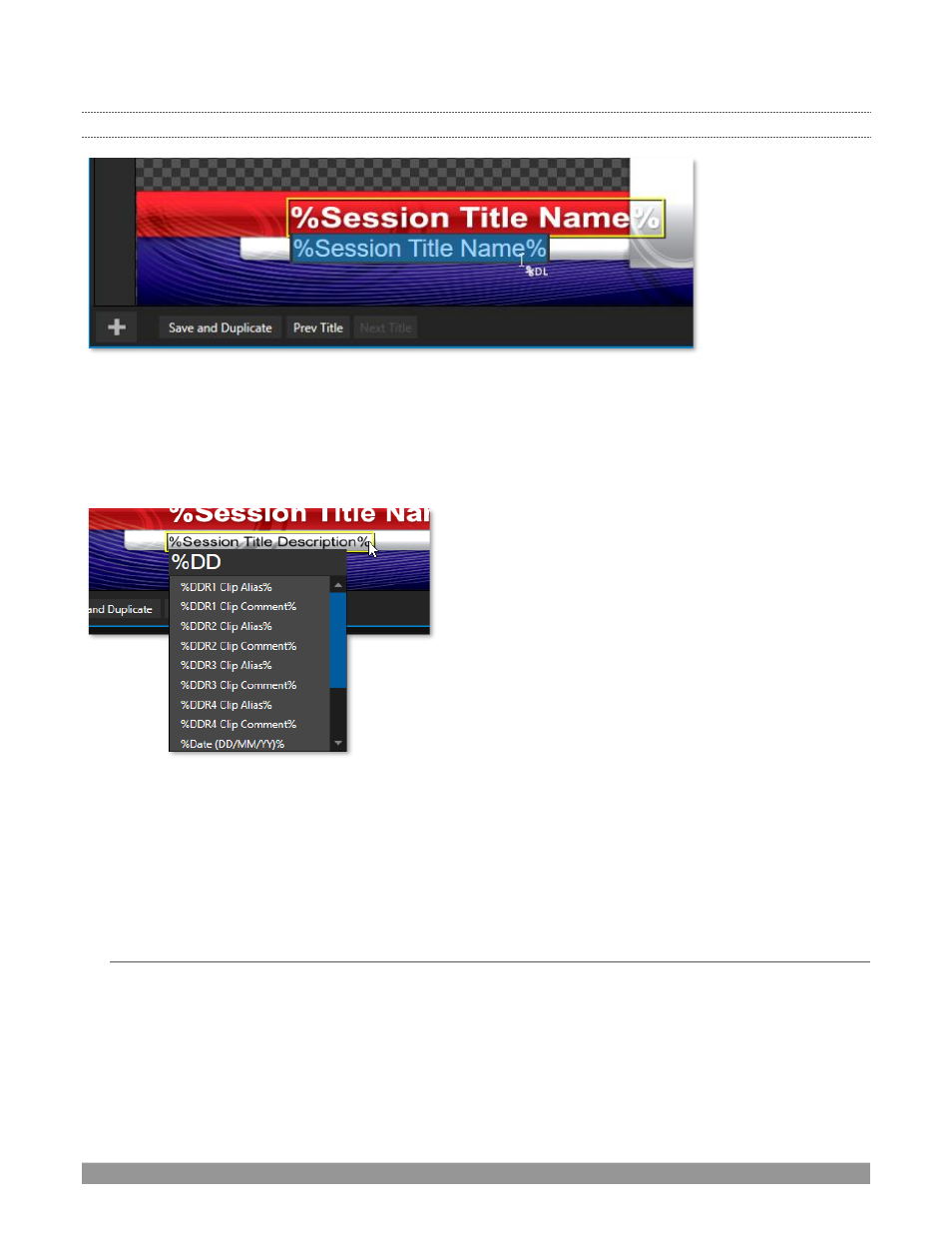3 datalink, Section 11.3 buffers – NewTek TriCaster 2 Elite (3 RU) User Manual
Page 147

P a g e | 129
11.2.3
DATALINK
FIGURE 160
Since
DataLink
falls into the general realm of automation and also has access to external sources, complete
coverage of its features and capabilities is found in the companion
Automation and Integration Guide
included
with this product. We’ll mention here, though, that b
oth text and images on title pages accept
DataLink keys
as input.
The Title Editor tells you which entry boxes accept
DataLink
keys by showing a custom mouse pointer, in the
form %DL, as shown in Figure 160.
Making key entry even faster and easier to use, all
available
DataLink keys
are shown in the drop-down
menu as soon as you enter a % sign into an entry box (
key
names
are in the format %
key name
%). If you continue
typing, the list shown is filtered to show only relevant key
names (Figure 161).
A line of text or image on a title page that has been set to
a key name will be automatically replaced by the current
value assigned to that key when the page is displayed.
There are endless uses for
DataLink
, and many ways to supply and update values assigned to
DataLink keys
.
For just one example, refer to the heading Configure DataLink Keys in Section 5.3.2. And do not fail to take
advantage of the power and convenience of the
DataLink™
web browser extension, which makes it easy to
populate your title pages over the network from a web browser running on virtually any platform.
SECTION 11.3
BUFFERS
The
system’s powerful
Buffer
implementation provides a large number of alternative graphics and animation
sources for
M/Es
(including their associated
KEY
channels), the main
Switcher
and
its
DSK
channels.
Buffers
are sometimes even more useful than similar imagery supplied from
Media Players
. The tabbed
Buffers
module ( Figure 162) shows icons and controls for fifteen
Buffers
.
FIGURE 161
